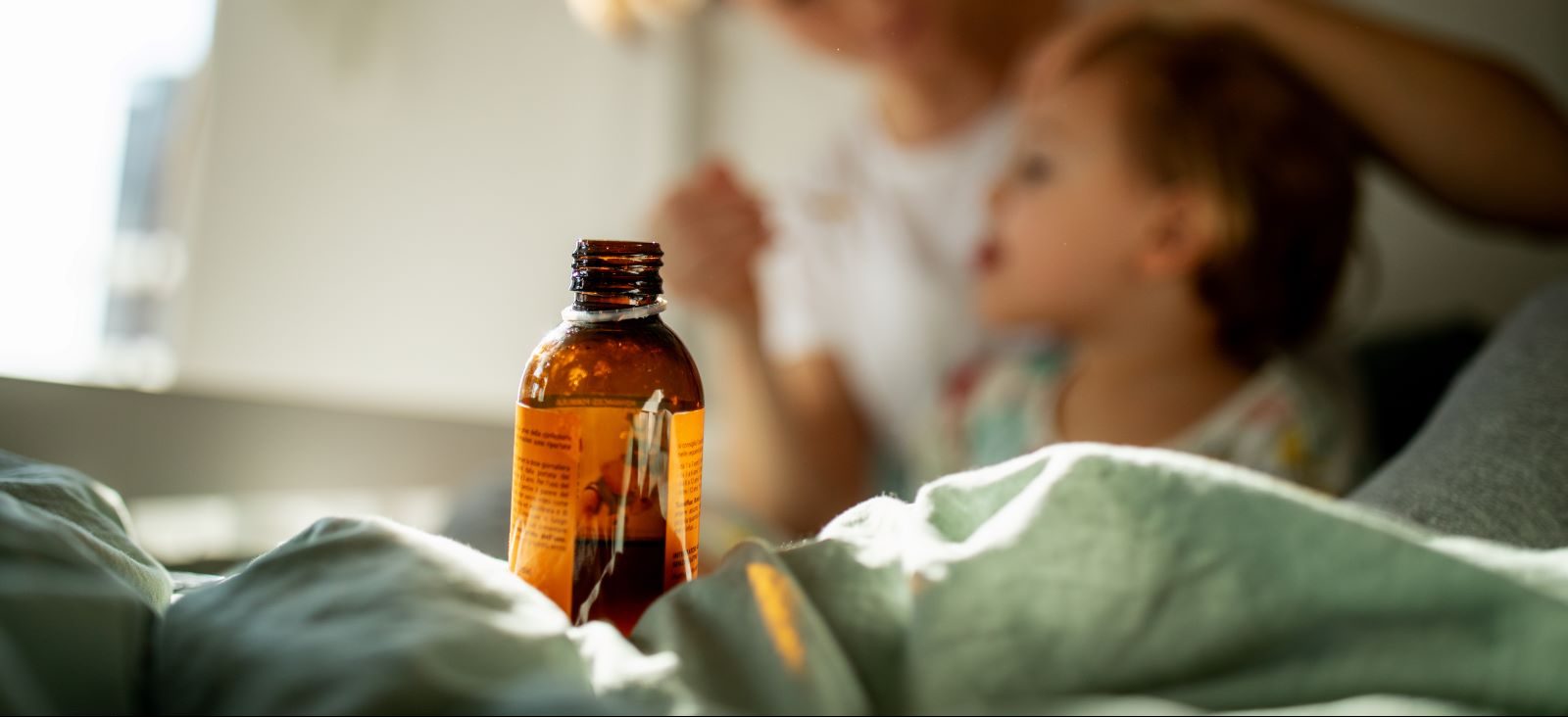If you’ve gone to the drugstore recently in search of cold or flu medicine for your sick child, you may have come up empty-handed.
Connecticut is experiencing a shortage of children’s medicine, with empty shelves reminiscient of the early days of the pandemic. And it’s not just Connecticut – it’s a nationwide problem attributed to the “tripledemic” – the simultaneous spread of the flu, COVID-19 and respiratory syncytial virus (RSV).
Here’s a few things to keep in mind when treating your sick child, according to Sara Sahl, MD, a pediatrician at Hartford HealthCare Medical Group in Litchfield.
> Connect with a primary care provider
Adult medicine is usually not appropriate for kids.
Parents should not adjust adult cold medicine for their kids, advises Dr. Sahl, especially those that treat both cold and flu.
“Combination cold and flu medications contain unsafe amounts of medicine for children,” says Dr. Sahl. “They usually include fever reducers, which can lead to over-medicating your child.”
Read the label before you buy cough syrup.
When choosing an over-the-counter cough syrup for children, Dr. Sahl recommends following these guidelines:
- Only give to kids ages 6 and older
- Choose cough syrups that contain only dextromethorphan or guaifenesin
- Avoid combination cold and flu cough syrup that might include fever reducers
Natural remedies can be a safe and effective option.
There are a number of alternatives to over-the-counter medication that are proven effective and don’t have any damaging side effects. For example, honey thinned with warm water can be a safe option to treat coughs in kids 12 months and older, says Dr. Sahl.
“Studies have shown honey to be just as effective as over-the-counter cough medicines, such as dextromethorphan,” she says.
To help thin and loosen mucous, making it easier to clear your throat, Dr. Sahl recommends these alternatives to medicine:
- Eating soups, broths and other warm liquids
- Running a cool mist humidifier in the room where your child sleeps
- Using a nasal saline spray
- Getting plenty of rest and fluids
When will shelves be restocked?
At this point, it’s difficult to determine exactly how long the shortage of medicine will last. Reports have said it could take anywhere from weeks to months for manufacturers to catch up.
If you’re having trouble finding the right remedy for your child, or have general concerns or questions about their health, contact your pediatrician immediately.



